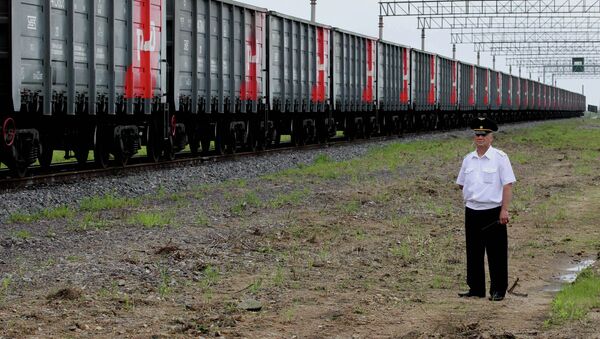Since March 2014, Xinjiang has opened cargo train service to Kazakhstan, Georgia, Iran, Turkey and also Chelyabinsk in Russia.
By the second half of the year, more than three cargo trains will run between Xinjiang and the destinations in Russia and also central and western Asia per week.
The trains will be able to transport $8.1 billion of cargo a year, local officials said.
The first freight train service linking a Chinese province to neighboring Russia was launched when a cargo train from the northeast Heilongjiang Province set off on its maiden journey to central Russia on March 1, 2015.
The Silk Road Economic Belt initiative, announced by Chinese President Xi Jinping during a visit to Kazakhstan in September 2013, includes countries situated on the original Silk Road running through Central Asia, West Asia, the Middle East, and Europe.
The initiative calls for the integration of the region into a cohesive economic area through building infrastructure, increasing cultural exchanges, and broadening trade.
In October 2013, Xi Jinping proposed the second branch of the project, the so-called Maritime Silk Road, to run through Southeast and South Asia.
In February 2014, President Xi Jinping and his Russian counterpart, Vladimir Putin, reached a consensus about the construction of the "Belt and Road,” as well as its connection with Russia's Euro-Asia Railways.




